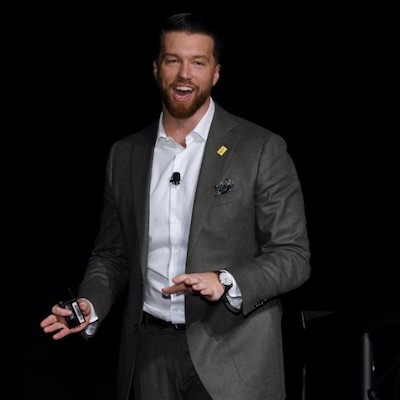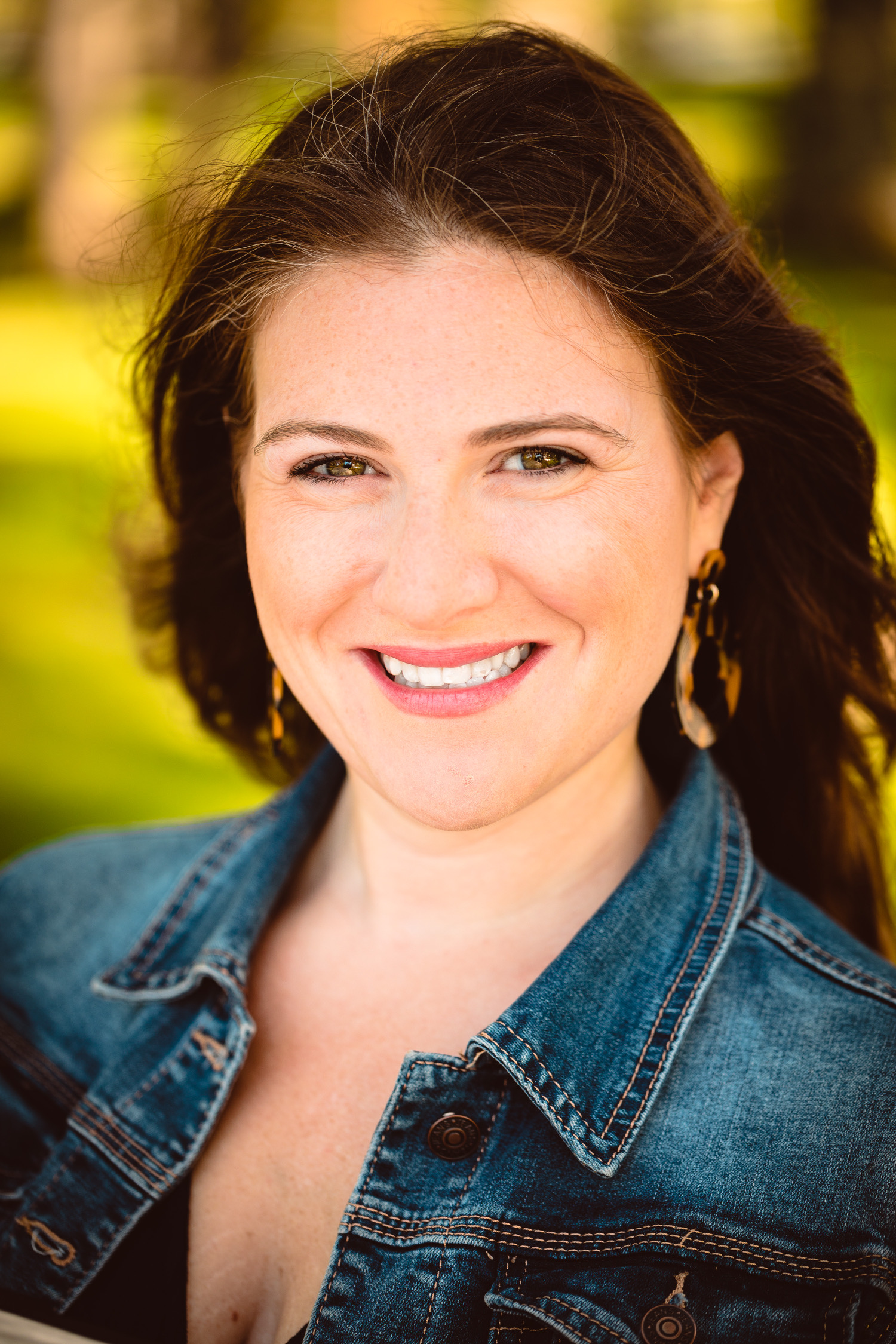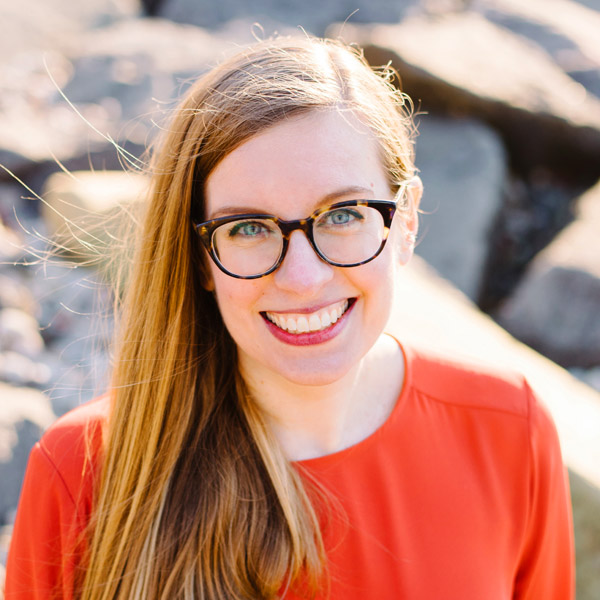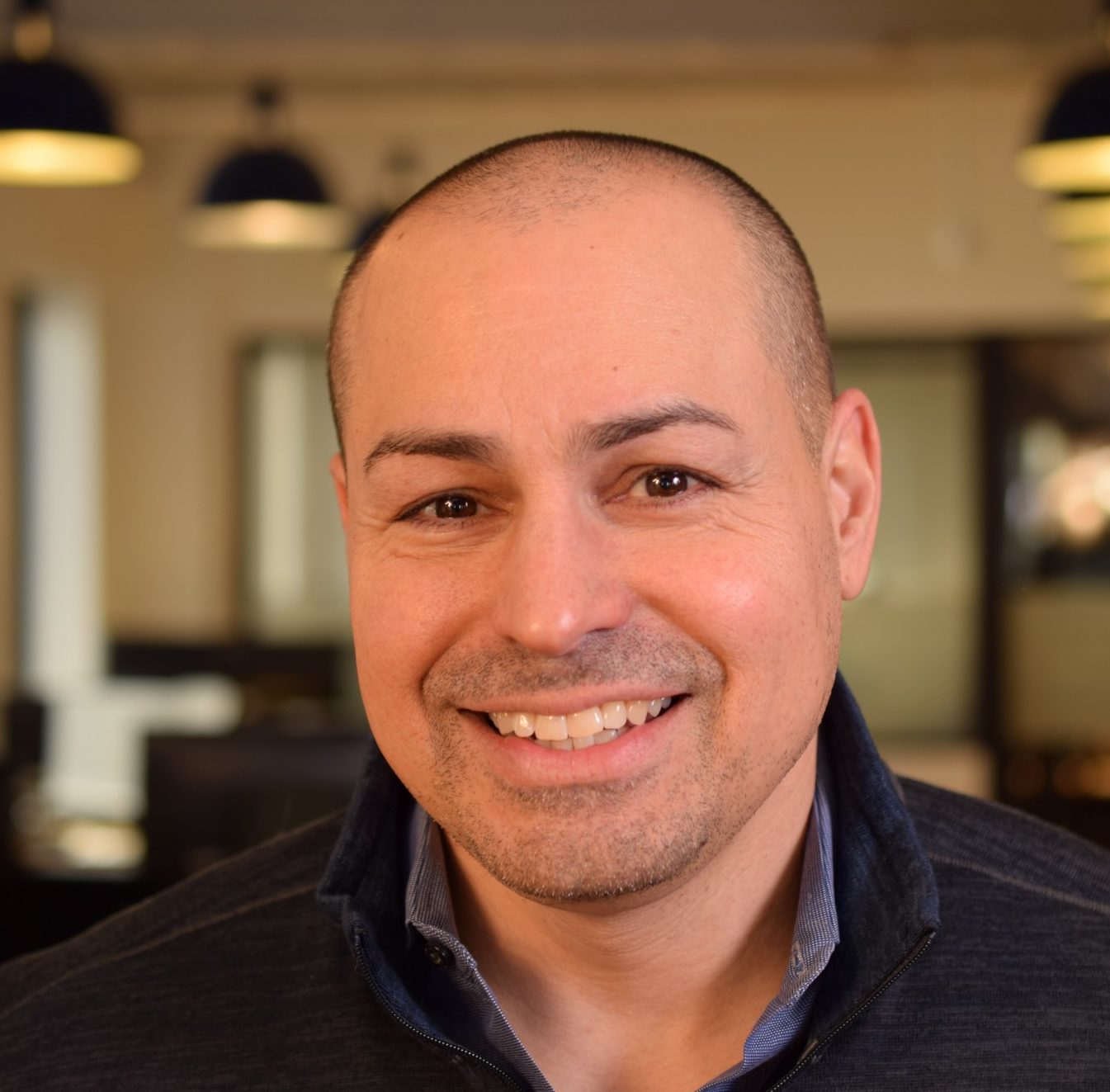What are we talking about?
Generational differences in the workplace as we move to a digital age.
Why is understanding generational differences important for the future of work?
Baby boomers at the end of their careers have had to constantly make huge changes in the way work has happened.
Gen Xers have seen the changes coming, but started their careers in organizations that were just beginning to digitize.
Millennials have been at the center of the full transformation to digital.
Gen Z knows nothing beyond digital.
How we lead each group changes as we move towards the future of work. As we learn more about generations in the workplace, we can be more effective at how we adapt to challenges each of them are facing.
What did Kyle Gordon teach us about generational differences at the workplace?
Kyle Gordon isn’t your typical millennial story. He started at Stanley Security at the start of his career and has been with them for more than 12 years now, and now he’s the VP of Sales and Marketing, leading a very young team. He’s the rare kind of person who deeply knows how to interact with older and younger generations simultaneously.
Kyle said that Stanely has allowed him to fulfill the millennial craving for more experiences while staying at an established company for your entire career.
At the heart of communicating across generational differences at the workplace is emotional intelligence, says Kyle. He has to adjust his message and make sure that it appeals to those he’s speaking to. We need to recognize the bias we have. “Just listen to other people.”
He says that anytime we are quick to judge older generations, we need to remember what those generations did in order to put us in the position we are today. Many of them sacrificed a lot in order to create a world where we can find new problems to deal with. For other millennials, he challenges them to have an insightful conversation without looking at your phone.
Kyle talks a lot about how the shift to remote work in response to COVID-19 has impacted generations differently, and how he’s led different groups of people through it. He has three principles that have helped him succeed.
- Allow space for vulnerability, (“I don’t know how to do something”)
- Allow space for failure
- Celebrate the heck out of something when it works
When he thinks about Gen Z, “Leadership is a constant changing, evolving thing. It’s a living, breathing responsibility.” He knows he will have to adapt his leadership style when this generation starts to come in big waves.
More from Kyle Gordon
Today, our guest is Kyle Gordon. He’s the VP of sales at STANLEY Security. Hi, Kyle. How you doing today?
Doing great. Thanks for having me.
We’re very excited to have you on. We’re all waiting through a new world of work right now. Specifically today, we’re going to be talking about some ideas about generations about different types of leadership that come on. But I want you just to start off introduce yourself and the kind of work you do.
I lead sales for STANLEY Security, which is a division of Stanley Black & Decker. Have been with the organization for 12 years. Started with the organization right out of college and have been fortunate enough to hold many different roles. I think it’s important to say, 33 years old, and just enjoying leadership, enjoying the different dynamics, but certainly have had a fantastic experience as far as Stanley and continue to learn a lot every day about the different dynamics of leadership.
You seem like that unicorn person that’s out there, you’re young, but you have 12 years of experience and only with one established company. So, what’s that like? I don’t know many other people like you.
I know. It’s weird, right? First of all, I think I got lucky in landing in an organization that gives you so many different opportunities to fulfill professional development within one company. It’s a large organization. STANLEY Security is a 10,000-employee division of Stanley Black & Decker, which is a 60,000-employee division. In some ways, you cheat the system because there’s many different jobs and many different companies within one large company. And so, I have been able to dip my toe into different things along the way. But at every turn, I’ve been lucky enough to have mentors and friends and bosses who have pushed me into different roles that I may have not been comfortable with to start. That’s so filled, maybe I’d call it the millennial craving that most of us have had, and allowed me to stay with the organization.
How has it been for you as you’ve risen up the ranks at Stanley? Do you feel like it’s been very natural? Have you had to learn about office politics that have been there for a long time? Has it been a smooth transition? How do people who are older than you view that? How’s it been for you?
All of the above in that question there. Every level up, you’ll call it, you get a little bit more visibility into the macro. My story specifically, I started out as an individual contributor at a field sales level. And every day just went out, entry level sales position just went out outside sales, called on customers every day. And that was my world. It was my team in Rochester, New York, which is where I’m from, and four or five strategic customers that I really helped solve problems on a daily basis. That was it. That was my world. Then obviously, the next role when it becomes regional, your world expands. There’s different team dynamics, different personalities, that you have to understand, appreciate, compensates for in many times in many, many examples. As you continue to add more people and more personalities to the organization that you’re working with or responsible for, the dynamics change. So, whether you call that politics or you call that teamwork, whatever you want to label it as, being able to navigate the different nuances of someone’s personality becomes more and more important.
I see your role as very much like a bridge between cultures, especially when we talk generationally. You used the word compensate so I’m going to get into that a little bit more. How do you feel like you have to explain to people who are younger than you about, this is what our culture is like, this is how we should respect other people, this is what we need to learn from others? And how do you also compensate for those who are older than you that are in those roles? So talk about that dynamic.
If I was to say one of the things that has helped me, and it’s unique to me. So, if I think about a peer of mine who maybe, at my same age, went into a new role at a new organization at the same level, I think they would have a harder time because I have the benefit of 12 years of credibility within the organization. There’s a lot of people in this organization who have mentored me, still to this day, since I was just entry level salesperson messing everything up all the time. People have taken me under their wing, walked me through it. There’s an added benefit for me that I’ve been with the organization and there’s a lot of people who say, Kyle gets it. He’s been there. He’s lived it. He’s put in his time. So, I think I do have a little bit of a benefit in that sense, unlike someone else who would be coming in fresh. One of the biggest things, and it is cliche, but it’s so important, I think, and it’s more important than it was 10 years ago or 12 years ago when I started, is really emotional intelligence. Being able to relate to people now is so important, being able to understand what makes people tick.
When we say compensate, that doesn’t mean money. That doesn’t always be money. That means how are you prioritizing recognition? How are you prioritizing your phone calls? Are you making sure that you understand what people’s personal dynamics are, what their life outside of work looks like? That resonates across generations. I think it’s just more prevalent now. The same thing applies, one of my later tenured salespeople are just as excited to receive a thank you note or a phone call as someone who’s been on the job 90 days. It’s just that it’s become a new norm, or it’s become a lot more recognized now. And frankly, companies are coaching leaders on how to be more emotionally intelligent. I think we’re seeing a really cool dynamic play out in corporate America, which is, we talked about this earlier with some other things, but a more empathetic organization that’s really building, hopefully, more well rounded, working environments.
A lot of times when we talk about generations, you see it in the context of, this is what you need to learn about millennials or Gen Z that’s coming up. But I want to flip that a little bit. What can you teach other millennials about working with people from Gen X and Baby Boomers? What’s a way that we can express emotional intelligence on our side?
Just knowing that I don’t think there’s a more selfless or hard working generation than those who have come before us. I take this from a personal story. I was blessed, and now I live every day through my blessing. I was born and raised in a fantastic family environment. I have two wonderful parents and amazing sister, a dad who traveled across the country for damn near 20 years, a mom who commuted to work an hour and a half every day. And I grew up in a really nice neighborhood, a great family environment, great friend environment, all of those things that I know a lot of people didn’t have the luxury of having. And so, starting with understanding, first and foremost, that that generation has laid the foundation for what we’re doing today, I think is critical. And then, if you look in a professional setting, talking to our Millennials about how to have an insightful conversation without looking at your phone, how to maintain eye contact, how to ensure that you’re reading someone’s body language. Gen X, Baby Boomers, when they listen to you, they listen to you. When they talk to you, they are talking to you. When we, Millennials and Gen Zs, talk to you, in general, this is just generalities, we’ve got other things on our mind. And a lot of times often what I think we try and coach our earlier tenured consultants to do is really to try and quiet that because if you’re listening, just getting ready to respond, you’re actually not truly listening. And we find that that’s a problem that we have sometimes with some of our earlier tenure consultants.
Kyle, you seem like a guy who’s comfortable talking about privilege. You mentioned your upbringing and the opportunities you’ve had in life. As a young, well off, white man in a leadership role, how do you use that role to create space for others? What’s your perspective on how you’re doing that?
I think there’s a couple things. One, understanding that everyone comes to a conversation, everyone comes to an environment, everyone comes to a community with certain biases. So just upfront understanding and being honest with yourself that from an unconscious standpoint, from a conscious standpoint, you’re coming into this world with preconceived notions of other people, and really not as much judging yourself for it, but definitely quieting it and immersing yourself in other people’s points of view. I think one of the things that I’ve tried to do, and the organization is really, this is an exercise that I’ve been able to do through the organization because we have built employee resource groups, and we have built opportunities for collaboration at a local and national and global level, is to sit in and just listen to other people. Diversity of thought is just as important I think, too, to think of. It’s cognitive diversity. We have a ton of introverts. I’m an extrovert. How do I, when I talk, make you feel? But then, obviously, sitting down and listening to people who have different upbringings, minority groups, and just immersing yourself in that world. I was lucky enough growing up to play college basketball. And in that, I had, I’ll call it, some exposure to different walks of life, but even then, if I’m being honest, it’s not nearly enough to understand how other people live. Being very vulnerable about that upfront, I think allows you to have some intelligent conversations. I think what’s really cool about what’s going on right now in the world is that we’re seeing a new interpretation of political correctness. People aren’t as afraid to have courageous conversations if you do so with the right intentions.
Yeah, absolutely. I can sense that. There’s a definite difference between people who are genuinely interested in having these conversations and those who are just like, I’m supposed to say the right thing for this.
It can be disingenuous. You can be checking the box if you don’t approach it with the same passion that you have for your other tasks in a daily life, if you will.
Let’s bring it to the present. We’re talking here in April 2020. And what’s on everyone’s mind is COVID virus, we have all sorts of things going on. So, tell us about how you, as a young leader, have experienced that change. What do you notice in generational differences and how people have responded at your company?
It dramatically impacted the way we work. Just to put it in context, specifically to what my responsibility is, I run a sales organization of about 300 people in the United States. And they’re all outside sales. So prior to COVID-19, their days and our days were dominated by road time, air time, face to face, handshakes with customers, dinners, and trade shows, and all of the things that go into outside sales. And Stanley Black & Decker was pretty progressive in their approach to shutting down, or I should say mitigating, consequences of COVID-19. So, we had a full travel freeze, like the first week of March. So, we’ve been operating remotely now for a month, little over a month. In that time, we’ve had to fundamentally change the way that we sell. For leaders, the Zoom calls are quite commonplace. We’re oftentimes connecting on whether it’s budget calls or forecasts calls or just regular updates. But for the salespeople, who every day go up and they meet a customer now, we’re educating them on doing Zoom face to face meetings, on virtual signings, on remote trainings. It’s been quite a journey in terms of understanding, I think the first thing we did in this process, and we’ve done this, we’ve tried to do this and I know a lot of people try to do this as well. Just in general when you’re managing multiple generations is allowing people to be vulnerable, raise their hand and say when they’re not comfortable or they don’t know how to do something.
I have a lot of team members who couldn’t figure out how to start Zoom. I’m like, yo, that is okay. Raise your hand because for every Millennial that can spin up a Zoom convo, I guarantee you, you can coach them on how to door knock and get in the door. So, understanding that you allow some space for vulnerability, and that you set up very quickly trainings to help people have some one on one training so that they can feel comfortable. And I would say with that, also creating some space for failure. With all of these people trying things for the first time, really coaching our managers on, hey, this is our new norm. This is what’s expected of you and your team. It’s still sales, meaning we still require activity on a daily basis and customer interactions on a daily basis. That’s not changing. The only thing that’s changing is the way in which we do it. But come to that with the understanding that there is training involved here. Let’s make sure that we’re asking the team to give us feedback on what would be more helpful on different training sessions that will help them get up to speed. I think that the way to close the loop on that is when you see it effectively work, you celebrate the heck out of it where you recognize it, even over the top because you do have to recognize how uncomfortable this process was for a lot of people. You only grow when you’re in your discomfort zone, if you will. There’s a lot of people right now that are still living in an uncomfortable space because they’re having to relearn things or unlearn and relearn things at 25 years into a career, 30 years into a career. So, I think it’s really important to understand that there is that personal dynamic going on for every one of our employees.
There are three things you said that really stuck with me. You said make space for vulnerability, make space for failure, and celebrate. I feel like that’s a really great framework for any kind of leadership, but especially when you’re leading a diverse group, and especially diverse in terms of age, to create that space for vulnerability for a younger person to be able to say, I don’t know how to get in and have a meeting with this person and for that to be okay to say, and for an older person to be able to say, I don’t understand and work this technology. That’s great. So, I really like that framework. It’s really great.
And we work on it every day. I don’t mean to profess that we’ve got it figured out. This is a daily exploration into social sciences and understanding the dynamics of people. And we fail every day, too, in ways that we could have helped people out. That, in and of itself, is something that I ask our leaders to do and I do quite often is also raise your hand and say when you messed up to the whole organization as quickly as possible. Hey, we should’ve move forward with quotas this month. That’s on me. The reason I did this, I’m not sure if that was the right decision, but that’s the reason we did it. And I want you guys to hear it from me. I think that’s really important to get out in front of, especially during times of disruption and a lot of uncertainty.
Kyle, if you’re going to be in this role for another 5 or 10 years, you’re obviously going to be hiring and training a lot of people from the Gen Z that are coming in, you may even have some that are there already. Do you feel like the basic model that you have of leadership right now is going to stay the same? Or do you anticipate making any adjustments as you bring on even more new people?
I think leadership, and now, brace yourself, here’s a cliche response. I think leadership in general is a constant changing, evolving thing. It’s a living, breathing responsibility. So, it certainly will change. It certainly will continue to evolve. I think one of the things that has attracted talent thus far for us is we do have a lot of social tools. We encourage participation from all of our employees with their input and thoughts, but even more so, from an influencing standpoint, we have a blog series and anyone can be an influencer within our organization. If they want to write something that we go and we publish, they have free reign to do so. So, there’s a lot of folks that we’re hiring that now from the Gen Z group, and even Millennials, that have a lot of thoughts, want to get their voice heard, want to be heard, and we’ve given them an avenue to do that. Write your blog, get with marketing, they’ll work on making it look a little bit better, and we’ll get out there for the world to see. I think creating creative outlets for specially Gen Z’s to be able to express their opinions is something that has helped us attract some different talent. So that’s how we’re going to continue to do that. And then, five years from now, what that looks like is going to be, in my opinion, will be a totally different set of technology. It’s going to be a totally different expectation of leadership and how we communicate. So, we’ll see what that looks like. But I expect it to evolve significantly.
I think we’re off to a good start with the framework you gave. And as long as, like you said, we’re continually curious, we’re continually open to change, and recognizing that we will all have to make shifts as things move along. I think that’s a great start. Well, Kyle, this has been a lot of fun. If you have any resources or places people can go to stay in touch with you or anything else you’re doing.
Yeah, I’m on LinkedIn. That’s about it. I do a lot of work and then when I got some spare time, I spend it with the wife and the newborn and I’m loving the heck out of that. But you could see me on LinkedIn or STANLEY Security. That’s about it. Nothing else to promote here.
Awesome, cool. Well, thanks a lot for being on the show. We appreciate it.
All right. Thanks so much.
Kyle is the VP of Sales and Marketing for Stanely Security. He works with the Field Sales and Marketing Professionals on a daily basis to advocate for their customers and progress the industry.












